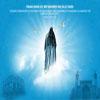
When we hear the words of the grief stricken story of Karbala, many names come to mind, names of those who laid their lives for the preservation of Islam. There are the more prominent martyrs, such as Hazrat Qasim (A.S) Hazrat Abbas (A.S) and Hazrat Ali Akbar (A.S).
Prominent because there were the men from the family of the Holy Prophet (S.A.W) and it were not entirely surprising that they gave their lives for Islam. Then there were those friends of Imam (A.S) who travelled to Karbala to fight Yazeed’s armies in defense of Imam Husain (A.S). These were people like Habib ibne Mazaher (A.S) and Muslim Bin Osajah.
But something astounding happened on the eve of Ashura, the 10th of Muharram. I would like to focus piefly on Hur ibne Riyahee -Yarbu’I (A.S). He was a commander in the Kufa army who had intercepted the course of Imam’s caravan and forced the caravan to stop at Karbala, the spot at which Imam would be martyred along with 18 Banu Hashims.
On second Muharram when Hur’s (A.S) army reached the caravan of Imam Husain (A.S), a few miles outside of Koofa the midday sun was fierce. Hur’s men and his horses were very thirsty and they requested water from Imam Husain (A.S). Imam graciously granted them water and also quenched the thirst of their horses. Nearly all the water that Imam (A.S) was travelling was thus consumed. Hur was very rude to the Imam (A.S) holding the reigns of Imam’s horse he said that was sent to prevent Imam (A.S) from travelling to Koofa. Imam Husain (A.S) informed Hur (A.S) that the desperate Muslims of Koofa invited him there. Hur (A.S) stood obstinate in the way and did not allow Imam (A.S) to proceed any further. When Imam (A.S) said that he would return and not go to Koofa, Hur told him that he was to follow the Imam. And so Hazrat Hur (A.S) and his 1000 men followed the Imam’s caravan to the land that was called Naynava, Mariya, Shattul Furaat, and most well known, Karbala. Imam Husain’s (A.S) horse stopped there and would not go any further.
When Imam (A.S) found out that they place was called Karbala, he smiled and said, “Surely this is the plain where my Holy Grandfather had prophesied that I with my faithful companions shall lay slain after suffering three days of hunger and thirst”.
Imam Husain (A.S) and his followers set up tents. Hur’s army stood vigil not far from the Imam (A.S) this was on the 2nd of Muharram. In the coming days, the forces of Yazeed were augmented by thousands. According to different historians the total force was up to one hundred thousand soldiers. They cordoned the Imam’s (A.S) camp off, leaving the tired men, women, and children without water or food. Their cries of thirst echoed through the desert and these were the cries that echoed in Hazrat Hur’s head and made him turn towards the truth. On the morning of Ashura, just before dawn, Hazrat Hur, along with his son and a slave, rode to Imam Husain’s (A.S) camp and begged for forgiveness. When he saw the gathered armies and their intentions he thought that Imam (A.S) would not have been in this situation had he not curtailed Imam’s (A.S) journey. Hazrat Hur threw himself at Imam Husain’s (A.S) feet and pleaded for forgives him for putting the Imam and his followers in fatal jeopardy. Before coming to the Imam (A.S) Hazrat Hur had asked his slave to tie his hand with a rope, so he can approach Imam (A.S) as a criminal. Imam Husain (A.S), being the supremely merciful man that he was, emplaced Hazrat Hur saying, “Hur, I forgive you, I assure that my grandfather, the Holy Prophet also forgives you”.
Hur then asked the Imam if he would permit him to fight the enemies of Islam and the Imam, being the most gracious of hosts, said, “Hur, you are my guest. How can I let you die for me?” Hur insisted and the Imam (A.S) granted him his wish. From that point on, Hazrat Hur fought on the side of Imam Husain and was killed while trying to keep Islam in its purest form. When Hur died, Imam reached his body and prayed to ALLAH (S.W.T) to commend this pave man who gave his life for Islam. The story of Hur is one of a battle between Noor and Zulamat and the prevalence of the power of an Islamic conscience over a human mind.
source : sibtayn













